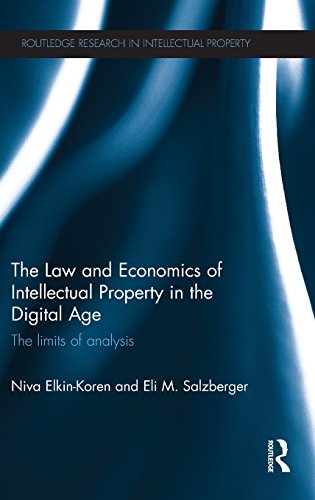

Most ebook files are in PDF format, so you can easily read them using various software such as Foxit Reader or directly on the Google Chrome browser.
Some ebook files are released by publishers in other formats such as .awz, .mobi, .epub, .fb2, etc. You may need to install specific software to read these formats on mobile/PC, such as Calibre.
Please read the tutorial at this link: https://ebookbell.com/faq
We offer FREE conversion to the popular formats you request; however, this may take some time. Therefore, right after payment, please email us, and we will try to provide the service as quickly as possible.
For some exceptional file formats or broken links (if any), please refrain from opening any disputes. Instead, email us first, and we will try to assist within a maximum of 6 hours.
EbookBell Team

4.1
60 reviewsThis book explores the economic analysis of intellectual property law, with a special emphasis on the Law and Economics of informational goods in light of the past decade’s technological revolution. In recent years there has been massive growth in the Law and Economics literature focusing on intellectual property, on both normative and positive levels of analysis. The economic approach to intellectual property is often described as a monolithic, coherent approach that may differ only as it is applied to a particular case. Yet the growing literature of Law and Economics in intellectual property does not speak in one voice. The economic discourse used in legal scholarship and in policy-making encompasses several strands, each reflecting a fundamentally different approach to the economics of informational works, and each grounded in a different ideology or methodological paradigm.
This book delineates the various economic approaches taken and analyzes their tenets. It maps the fundamental concepts and the theoretical foundation of current economic analysis of intellectual property law, in order to fully understand the ramifications of using economic analysis of law in policy making. In so doing, one begins to appreciate the limitations of the current frameworks in confronting the challenges of the information revolution. The book addresses the fundamental adjustments in the methodology and underlying assumptions that must be employed in order for the economic approach to remain a useful analytical framework for addressing IPR in the information age.